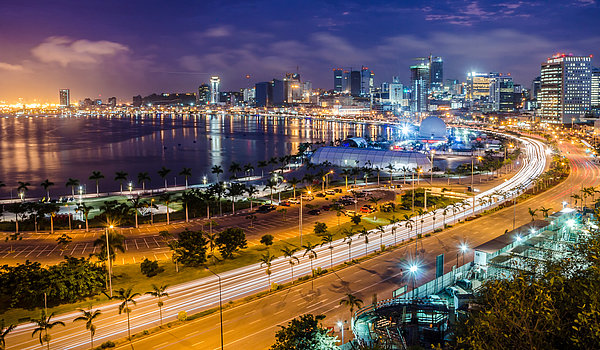The last hub of African Development is located in the Indian Ocean islands: the Indian Ocean Commission and more precisely, the company is present in Madagascar, Reunion and Mauritius. These three island states are part of the regional organization called the Indian Ocean Commission (IOC) founded in 1984 and whose interest is to strengthen integration between member states despite their differences. Indeed, the islands of the Indian Ocean are each unique, they have very different economic and geographical situations but they all present export opportunities for French SMEs.
The member states of the Indian Ocean Commission have a strategic geographical position which makes them highly attractive. They represent a real global hub because they are located at the crossroads of major shipping routes, strategic points of passage and straits, whether for world trade, military purposes, or for oil. The islands also possess important fishing resources all along the Indian and African coast.
Moreover, due to their geographical and cultural proximity to the African continent, the islands of the Indian Ocean benefit from the influence of its huge economic growth. Some of them are also part of several free trade areas with Africa: Madagascar and Mauritius have trade agreements with South Africa (SADC) and Central Africa (COMESA).
The Malagasy market is mainly characterized by its impressive size. In 2021, the population of Madagascar will be 26.9 million, but if we consider the trade agreements in which Madagascar is invested, it is a market of 600 million consumers. At the same time, in recent years, the island has achieved a certain political stability that has allowed for economic recovery and growth. In 2021, the economic growth rate was 3.2%. Finally, Madagascar has numerous and varied natural resources: agricultural, fisheries, energy and mining as well as an interesting legal and fiscal framework for foreign investments.
Mauritius is classified as a newly industrialized country. The island has a dynamic and diversified economy and a well-functioning political and economic governance. By 2021, Mauritius was expected to achieve 6.6% economic growth. Moreover, the island is now focusing its development strategy on modernizing its infrastructure and stimulating private investment. Finally, Mauritius is involved in a trade partnership agreement with the European Union, which aims to establish a free trade area between the EU and African, Pacific and Caribbean countries.
A French overseas department, Reunion Island is a dynamic economic market in the Indian Ocean and the most populous DOM with 900,000 inhabitants. The island shines through its strategic role as an intermediary between Africa and France, which was particularly the case during the Covid-19 crisis when the island established itself as a French logistical and health hub in the Indian Ocean. For several years, Reunion Island has succeeded in experiencing an economic boom and now benefits from a positive growth rate and a strong and even competitive consumption.
The commercial opportunities in the Indian Ocean islands are relatively similar from one island to another and mainly concern two sectors. It is the blue economy that concentrates most of the commercial activities in the sub-region. Thus, the Indian Ocean Commission has immense natural resources linked to the sea: fisheries, seabed, hydrocarbons, etc. This is why the most dynamic sectors revolve around this maritime domain. We can mention fishing of course, whatever the type of fishing, whose development allows an obvious economic valuation of maritime resources.
Then, there is the maritime transport, the Indian Ocean islands are real leaders in this sector thanks to the port of Saint Louis in Mauritius and the port of Reunion on the island of Reunion. Finally, blue tourism is a sector that the Indian Ocean islands wish to develop, so there is a real demand for foreign investment that could help its development. Tourism represents an essential part of the economic activity of the Indian Ocean countries.
Agriculture is also an emerging field in Madagascar, Mauritius and Reunion. It is an important sector of their national economy, and it is the cultivation of sugar cane that constitutes their first export item.
Finally, for the specific fields of each island, we can mention the large-scale distribution in Reunion Island (85% of the global food turnover of the island) and the scientific research on the natural maritime resources (Reunion Island could even become a world leader). In Mauritius, the manufacturing and textile sector (14.1% of GDP and employs 18.3% of the workforce) has great potential for export. Finally, in Madagascar, structural projects are particularly encouraged by the government, as seen in the development of telecommunications systems or the numerous investments that have financed projects in the energy sector.
African development offers a complete accompaniment, from the formulation of the project to the effective marketing of goods and/or services in African markets. This allows interested companies to be aware of the rules of exporting to Africa and to benefit from a good network to ensure the success of the project.
